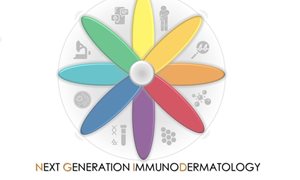
In a recent publication in Scientific Reports, Joyce Aarts and her colleagues of Experimental Rheumatology investigated the role of Transforming Growth Factor beta (TGFβ) in driving T cell immunology during arthritis. In rheumatoid arthritis (RA), chronic joint inflammation leads to invalidating destruction of cartilage and bone. In this complex autoimmune disease, CD4+ T cells are known to play a central role, and the balance between pathogenic T helper 17 (Th17) cells and immune-dampening T regulatory cells (Treg) is skewed in favor of Th17 cells.
Interestingly, TGFβ is a pleiotropic cytokine that promotes the differentiation of Th17 as well as Treg cells, depending on the cytokine milieu. Aarts et al. hypothesized that, in an arthritic environment with proinflammatory mediators like IL-1 and IL-6, blocking TGFβ could restore the Th17/Treg balance and suppress arthritis pathology. Therefore, they investigated the effect of inhibiting TGFβ signaling with the TGF-βRI inhibitor SB-505124 on murine Th17 differentiation in vitro, on cytokine production by human RA synovial explants ex vivo, and on the development of joint pathology in vivo during Th17-driven experimental arthritis in mice.
Blocking the TGFβ pathway potently reduced Th17 differentiation in vitro by decreasing gene expression of the Th17 transcription factor Rorc and production of the hallmark cytokine IL-17. Furthermore, inhibition of TGFβ significantly suppressed IL-6 production by RA synovial explants. In vivo, local treatment with SB-505124 in arthritic mice reduced Th17 numbers in draining lymph nodes, while increased numbers of Tregs were observed.
However, this beneficial effect of blocking the TGFβ pathway on the Th17/Treg balance did not result in a reduction in joint inflammation and destruction during experimental arthritis. This indicates that, despite the importance of TGFβ in Th17 differentiation, inhibiting the TGFβ pathway is not an adequate way to target Th17-driven inflammation.
read more
Related news items

Large NWA ORC grant awarded for national skin research: Next Generation ImmunoDermatology
23 March 2022Research for better treatment methods for chronic skin diseases.
go to page
NWO OTP grant to investigate fibrotic diseases with organ-on-a-chip technology
22 December 2021 Wouter Verdurmen & Peter van der Kraan have been awarded with a grant by the Netherlands Organisation for Scientific Research (NWO-OTP) to develop and employ innovative organ-on-a-chip models to investigate fibrotic diseases, with a particular focus on systemic sclerosis. go to page
RIMLS awards call for nominations
19 October 2021 RIMLS awards several prizes to stimulate and honor our (young) researchers. Upcoming awards are Supervisor of the Year, Best Master Thesis, Best Publication, Best Image and more. Send your nominations now before 24 November 2021. go to page
Best presentation award for Felicitas Pardow at the European Epidermal Barrier Research Network
28 September 2021 During the annual meeting of the European Epidermal Barrier Research Network (E2BRN) recently, Felicitas Pardow received the best presentation award. go to page
ZonMw Gender in Research competition awarded to Genderful Research World Consortium
27 July 2021 Natalia Valdrighi and Esmeralda Blaney Davidson won the competition to create a plan for the dissemination of the knowledge and skills gained during the Gender in Research workshop amongst their peers, colleagues and institution, financed by ZonMw and CIHR-IGH in Canada. go to page
